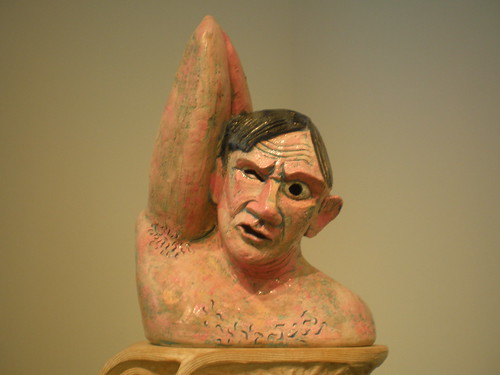
Sometime in April, I watched in horror as my husband pulled his shirt up. Sure enough, the rash had migrated across his chest up into his armpits, and even his shoulder.
“Oh, Sweetie,” I said to him. “I’m so sorry to see you this way.” I rubbed lotion all over the rash to soothe it, though I knew that as long as the pressure remained, the rash would only move once again.
In Chinese, he always called his condition shénjīngxìngpíyán (神经性皮炎), sensory neurodermatitis. Over the years, I came to know this — along with those sudden stomach aches John would get before a challenging day at school, and even his allergies — as a sure sign of my husband’s stress or anxiety.
I can count on one hand the times I’ve seen John cry, an emotional response that I pull out at least once a month — and sometimes, in the past months as we faced pressure from the discrimination, at least once a week. The strongest emotion I’ve seen from John would be what I might call frustration, but even that’s nothing compared to the anger I’ve flashed before him in the past. Instead, I read how John really feels through things like his spreading rash, or his stomach aches — things he referred to as somatization, the channeling of emotions into physical symptoms.
John mentioned somatization when he came across the idea during research about Chinese psychology: that Chinese might have a tendency to somatize, or complain of physical problems, when they experience psychological or emotional distress. Almost immediately afterwards, I mentioned his rash, stomach aches, and allergies — and John laughed in acknowledgement, that somehow he symbolized this very phenomenon.
But it’s not as if somatizing is just a Chinese thing. After all, when I get stressed, I don’t just show in my emotions — I also break out badly. In the past year, as I watched John weather the discrimination, he also watched my forehead become a war zone of acne.
Still, my acne can’t compare to John’s rashes. When we first came to the US together, his neurodermatitis flared up on his thighs, and turned into welts that took months to heal and even longer for the scars to fade. I still see scars all over his chest and arms from the past academic year.
But now that the year has ended and we feel even more hopeful, the neurodermatitis has faded away, leaving only a small patch on his bicep. Still, the challenges won’t end here — John must create an internship, and start that internship this fall — and, chances are, neither will John’s rash. That’s why I have more lotion stashed away, ready for another flareup. 😉

I heard something similar in Korea as well, that the emotions turn to physical problems, especially when it comes to depression and whatnot. If my Korean ex had something like that, I was never told by him. Closest thing was when he lived in New York and he told me he ended up in the hospital because he couldn’t bear the burden he had. I think if he had something like that, perhaps my family and I kept it at bay so to speak.
That’s why they say there is a connection between the mind and the body. In fact, this is to put it mildly. There is a definite co-relation, a tie-in so to speak. Whatever affects your mind definitely will affect your body and vice versa. But the mind is really the engine room. So, if you can manage the engine room, you manage the body. John’s symptoms will fade once he manages the stress that brought them out. Haha, go easy.
I really relate to this. My mom actually did research on psychosomatic disorders. I have this curious rash on my hand that flares up with stress and disappears and I am not one to hold any emotions in. But it really puts things into perspective regarding the people close to me ie my bf and my sister. Both of them complain about physical ailments and curious symptoms around the same time as when something stressful happens. And neither of them show any awareness of actual psychological antecedents of these symptoms.
Chinese believe what you feel/react internally to things around you and in your life will show up on your appearance. Hence, Chinese saying, “氣色不好“often indicates supressed stressed or illness. Such supression blocks the right “氣”(energy) from free flowing and internal secretions that are supposed to keep our bodies from being ill. One thing Chinese has discovered is to practice deep breathing – by counting deep breathing (ex. breath in 10 seconds, hold for 20 seconds, breath out in 30 seconds) will bring some balance into restoration. Personally, I found this practice to be very useful especially in our fast-paced life style.
Somatization is big part of traditional Chinese medicine. My family member wil blame any organic disease on psychological reasons (stress, hardship, depression). But in reality, only some diseases have psychological cause. Eczema is one of them.
I get acne out break under stress quite often. The treatment of cream works but has to be early on at the slight sign of acne. However, I tend to ignore the early sign while under stress. By the time the out break starts, it is too late for any treatment …
I also get worse allege reaction under stress, guess my immunity system pays its toll when emotion in turmoil.
Told you guys to exercise to relieve stress but nobody listens :(. Stress can kill sometimes. Even you sit still you can have stress.
Guys, this video will heal all your somatized problems.
@Bruce – I work out almost daily. The problem is when you are absolutely exhausted, all you want to do is sleep, don’t even have the desire to put on the creame and acne break out in the morning 🙁
17 yrs ago, I had so much stress that I almost got an ulcer. It was so painful. I understand everything and on how we have to take care of our spouse in times of need.
@cvaguy, I work out rarely these few months due to another project I have to complete. Lots of people said I look bigger because I lift really heavy this yr. You know life is very short and you must know how to enjoy a little bit to relax. You must have some hobbies eventhough you have kids. Being open minded and not so uptight then we will have less stress.
I can totally relate! When I feel sudden, intense emotions, I tend to get dizzy, lightheaded, and nauseated. I need to learn how to “feel” my emotions psychologically, not physically, and let them out, but not sure where to start…